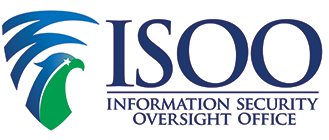
Classification Challenges

Authorized holders of information who, in good faith, believe that its classification status is improper are encouraged and expected to challenge the classification status of the information in accordance with agency procedures established. Those including authorized holders outside the classifying agency, who want to challenge the classification status of information shall present such challenges to an original classification authority with jurisdiction over the information. A formal challenge must be in writing, but need not be any more specific than to question why information is or is not classified, or is classified at a certain level.
Federal Agency Responsibilities
Agencies shall ensure that no retribution is taken against any authorized holders bringing such a challenge in good faith.
Agencies shall establish a system for processing, tracking and recording formal classification challenges made by authorized holders. Agencies shall consider classification challenges separately from Freedom of Information Act or other access requests, and shall not process such challenges in turn with pending access requests.
In accordance with implementing directives issued pursuant to this order, an agency head or senior agency official shall establish procedures under which authorized holders of information, including authorized holders outside the classifying agency, are encouraged and expected to challenge the classification of information that they believe is improperly classified or unclassified. These procedures shall ensure that:
(1) individuals are not subject to retribution for bringing such actions;
(2) an opportunity is provided for review by an impartial official or panel;
(3) individuals are advised of their right to appeal agency decisions to the Interagency Security Classification Appeals Panel (ISCAP) established by section 5.3 of E.O 13526;
(4) Documents required to be submitted for prepublication review or other administrative process pursuant to an approved nondisclosure agreement are not covered by this section.
Whenever an agency receives a classification challenge to information that has been the subject of a challenge within the past two years, or that is the subject of pending litigation, the agency is not required to process the challenge beyond informing the challenger of this fact and of the challenger’s appeal rights, if any.
The classification challenge provision is not intended to prevent an authorized holder from informally questioning the classification status of particular information. Such informal inquiries should be encouraged as a means of holding down the number of formal challenges and to ensure the integrity of the classification process.
Agency Timelines & Considerations
(a) Challenging classification. Authorized holders, including authorized holders outside the classifying agency, who want to challenge the classification status of information shall present such challenges to an original classification authority with jurisdiction over the information…A formal challenge under this provision must be in writing, but need not be any more specific than to question why information is or is not classified, or is classified at a certain level.
(b) Agency procedures.
(1) … agencies shall ensure that no retribution is taken against any authorized holders bringing such a challenge in good faith.
(2) Agencies shall establish a system for processing, tracking and recording formal classification challenges made by authorized holders. Agencies shall consider classification challenges separately from Freedom of Information Act or other access requests, and shall not process such challenges in turn with pending access requests.
Considerations:
Whenever an agency receives a classification challenge to information that has been the subject of a challenge within the past two years, or that is the subject of pending litigation, the agency is not required to process the challenge beyond informing the challenger of this fact and of the challenger’s appeal rights, if any.
The classification challenge provision is not intended to prevent an authorized holder from informally questioning the classification status of particular information. Such informal inquiries should be encouraged as a means of holding down the number of formal challenges and to ensure the integrity of the classification process.
Timeline:
The agency shall provide an initial written response to a challenge within 60 days.
If the agency is unable to respond to the challenge within 60 days, the agency must acknowledge the challenge in writing, and provide a date by which the agency will respond.
The acknowledgment must include a statement that if no agency response is received within 120 days, the challenger has the right to forward the challenge to the Interagency Security Classification Appeals Panel (ISCAP) for a decision.
Agency responses to those challenges it denies shall include the challenger’s appeal rights to the Panel.